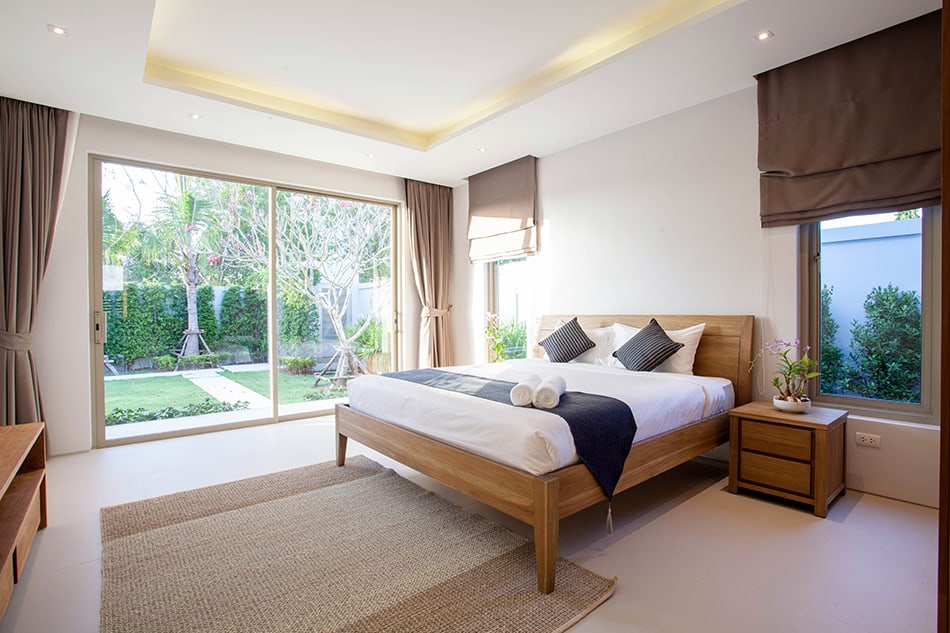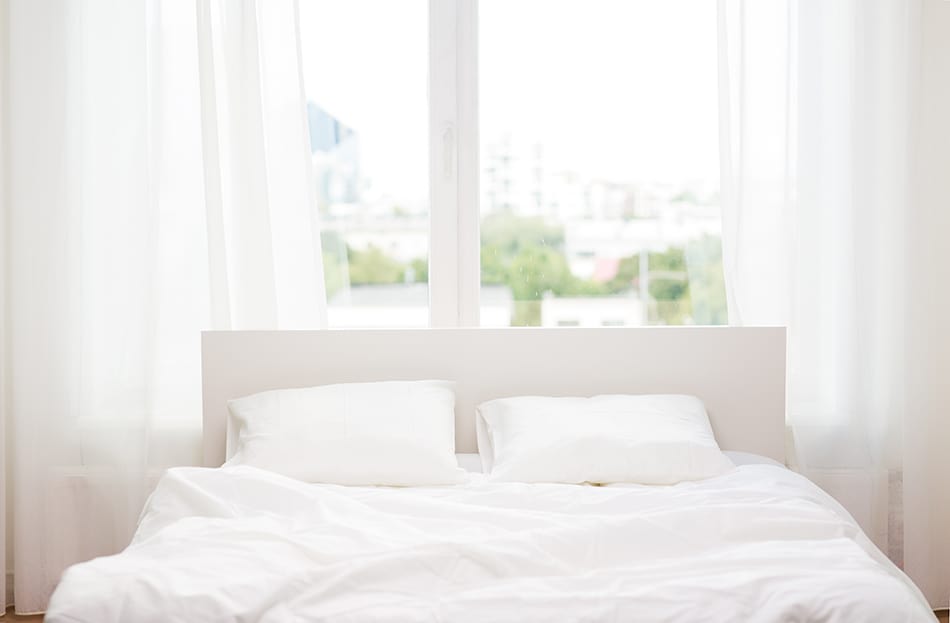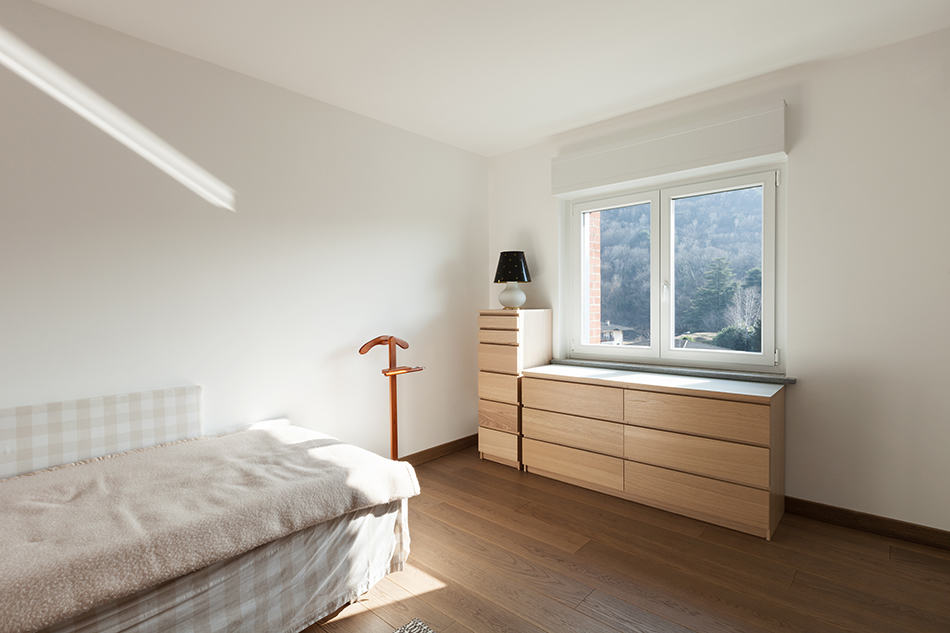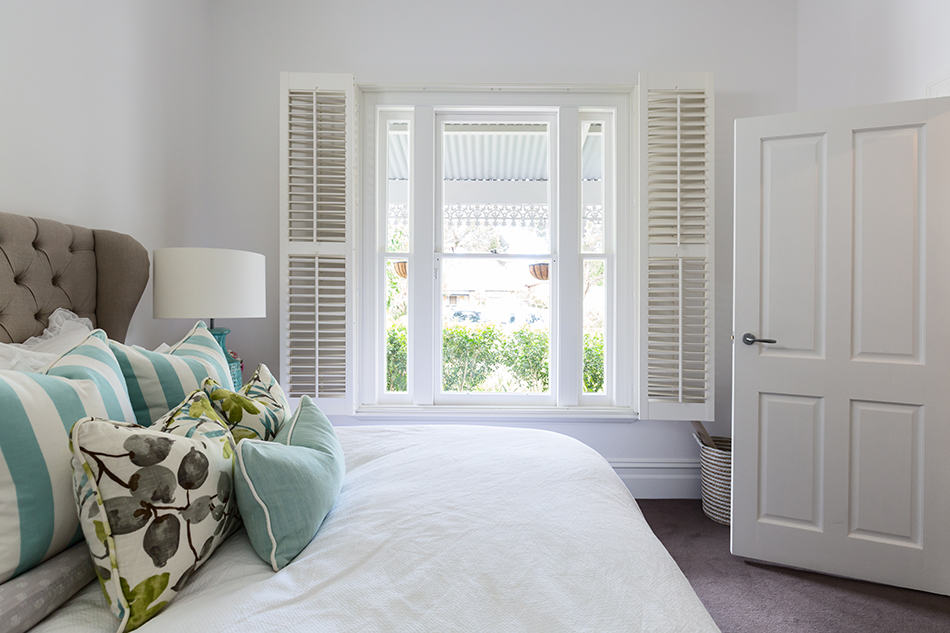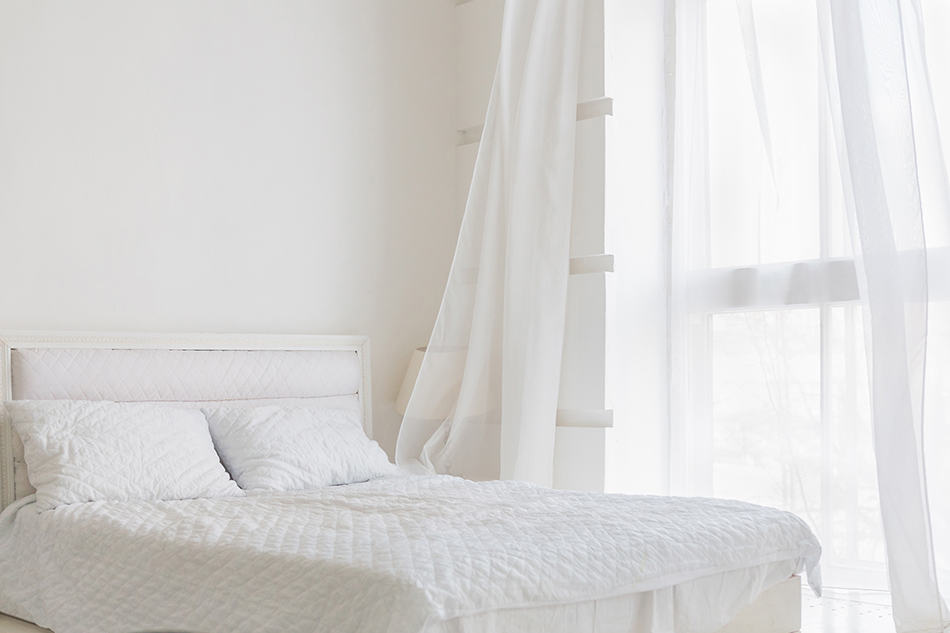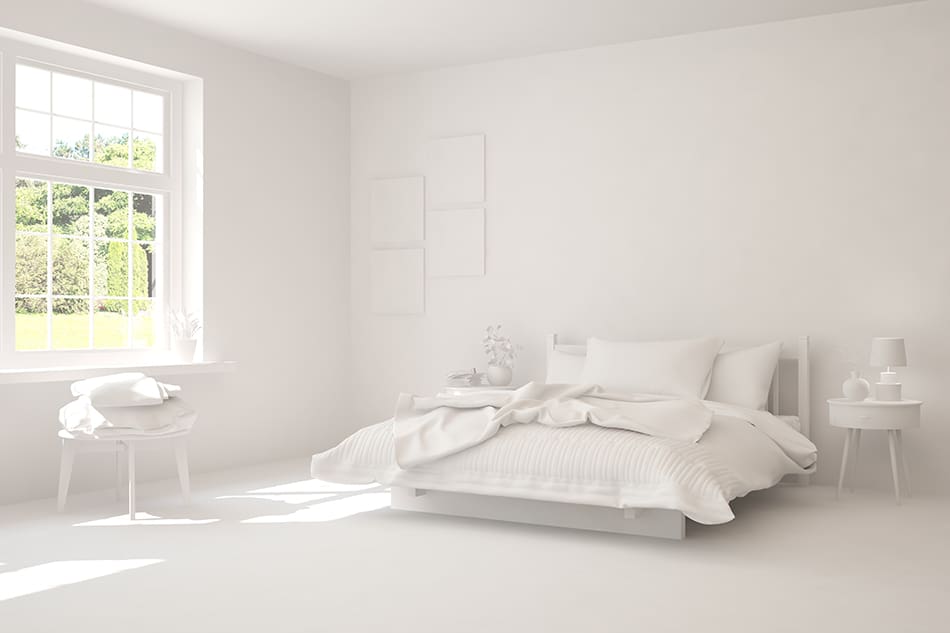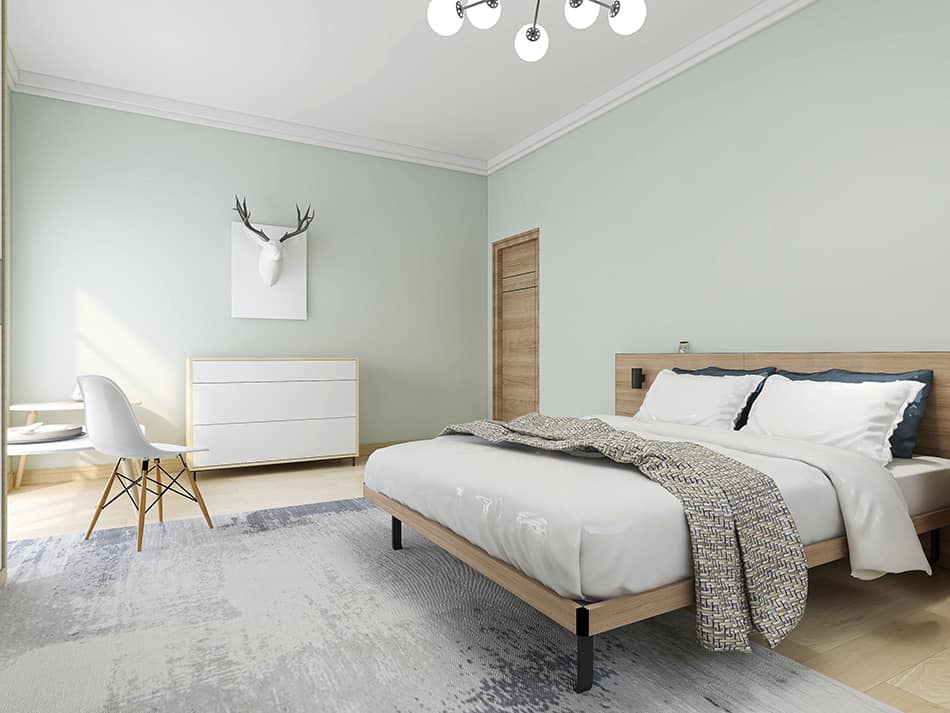A peaceful night’s sleep is essential for our mind and body’s health. It is during the night that the body can rest and recharge itself for the next day. A bed is the most important item of furniture in the bedroom, so it must be comfortable and arranged in the best possible position.
If you have just moved to a new home or are giving your bedroom a makeover, you may be wondering where the best position for your bed is.
For the most part, choosing the ideal bed position in a room with windows is based on personal preference, with some good and bad positions that are good to know. Here are some general rules to follow according to Feng Shui to ensure you enjoy the most peaceful sleep.
Bed Positions in Room with Windows: Do’s and Don’ts
In most states in the US, to be called a bedroom, the room has to have at least a window for many reasons, as explained in this article. So where should you place your bed in a room with windows?
Bed Under the Window: Bad Feng Shui
Placing your bed under the window has many disadvantages, both in terms of Feng Shui, a traditional Chinese practice and ease of access. If you’re going to open and close your windows frequently, it’s best not to place your bed under the window. According to Feng Shui for the bedroom, keeping your bed under the window can lead to negative chi or energy.
But there are also other reasons why you should avoid placing your bed under the window. These are:
- Sleeping near the window may make you sick because of the possible drafts seeping through the window
- The outside noise pollution can disrupt sleep and diminish restfulness
- Too much light can enter the room and raise your level of alertness
- On sunny days, it can feel uncomfortable napping in the afternoons as direct sunlight will be bothersome
If there is no way of avoiding sleeping under a window, make sure you have a solid headboard. This essential part of a bed is also a good Feng Shui design as the idea is to shelter the bed like a mountain. The headboard should be made of solid wood or upholstery. A good headboard should not be disproportionately tall for the bed and it must be attached to the actual bed with rounded edges.
Bed Facing a Window with Direct Sunlight: Bad for Sleeping
Having your bed face a window is just as uncomfortable as sleeping right under it. In summer, windows can let direct sunlight and heat enter the bedroom, thus stimulating your mind and waking you up. If you have no other choice but to sleep opposite the window, make sure you install 100% blackout curtains to keep heat and sunlight out in the mornings.
An exception is for those who have great views of nature or city. Sleeping on a bed that faces a window with panoramic views can be the most joyful experience, especially if you love watching the sunrise in the mornings.
Bed Opposite the Door: Bad for Positive Energy
In Feng Shui, it is believed that placing a bed opposite the door can create negative energy. As a consequence of this negative energy, you may feel drained during the night. Instead, place your bed across the door in a diagonal position so you have a good view of the entryway. Always avoid placing the bed directly opposite the door.
If you have no option but to put your bed opposite the door, create a positive vibe by adding a side table or a stylish lamp next to your bed.
Bed Next to the Window: Uncomfortable in Summers
When a bed is placed next to the window, it can provide a relaxing vibe and help you sleep better. You can also make good use of the windowsill as a bedside shelf for your lamp or other accessories.
But there are also downsides to sleeping beside the window. If you have a room with views, you might be tempted to wake up every morning to enjoy the outdoor views. In summer, a bed next to the window will disrupt your sleep just as sleeping opposite it would – unless you resort to keeping your blackout curtains closed for longer to block the sunlight.
Instead of sleeping next to the window, try to move your bed at least a meter away from it. This way, you’ll still be able to enjoy the views but without the disruption from direct sunlight.
Bed In the Center of the Room: Best Option
The best position for the bed in a room with windows is in the center of the bedroom. Ideally, place the bed right in the middle of the longest wall of the room so as to emphasize the most important furniture item of the bedroom.
The idea is to create a focal point out of the bed by positioning it in the spotlight. This way, you’ll give the room focus while creating a sense of balance. You can use the wall space above the bed for hanging decorative wall art.
A similar idea is to place the bed in the middle of the room but without leaning the headboard against the wall. This is ideal for large bedrooms as there is ample space for the bed to stand out in the center of the room.
Bed Against a Windowless Wall: Second Best Option
The second best position for your bed is to put it against a windowless wall. To make it even more comfortable, provide a solid headboard and keep the bed as far away from both doors and windows as possible. The bed shouldn’t be aligned with the entrance or bathroom door in order to lessen the negative energy and have ample space to access the bed.
A windowless wall space is the perfect opportunity to decorate, especially if you want your bed to be the main attention grabber. Alternatively, you may opt for overhead shelves for additional storage.
Good Feng Shui Directions For Your Bed
There are various bed position directions that are perceived as good Feng. Let’s go through each direction and learn why it is recommended by this ancient Chinese philosophy:
West: facing the bed west helps create the best sleeping conditions. This direction is associated with contentment. But it can also promote laziness or demotivation. It is, therefore, only recommended for people who are in successful careers.
East: positioning your bed towards the east will refresh your mind and make you feel that every day is a new beginning. This bed direction is especially ideal for the young as it promotes good sleep. If you’re an ambitious kind of person, you should consider positioning your bed east.
South East: this bed direction is for people who have trouble communicating or for the creative mind.
South West: for the restless minds, it is best to face your bed in the southwest direction to calm your thoughts and make you feel at peace. This is an ideal direction for those who want to feel more settled in their life.
Bad Feng Shui Directions for Your Bed
Placing your sleeping quarters in bad Feng Shui directions can lead to restless nights and negative energy. Here are the bad positions that you should avoid:
North: facing your bed towards the north can lead to various sleep disorders, such as insomnia. This position is often referred to as the death position for the young. However, if you are an older person, the north position can promote peace and tranquility.
South: one of the worst sleeping directions is the south as the energy surrounding it is too high. You are more likely to have heated arguments with your partner by sleeping in this direction.
North East: if you’re an edgy or paranoid person, sleeping in this direction can easily evoke nightmares and bring out strong emotions.
Wrapping it Up
When deciding where to put your bed in a room with windows, take into account the best Feng Shui directions to get the best sleep. If you can, avoid placing your bed too close to the window, as it can be drafty and uncomfortable under the morning light. While the Feng Shui design suggests you place your bed in the middle of the room, you don’t have to adhere to this rule.
Choosing the best bed position that suits your bedroom’s aesthetic and space is of utmost importance. For example, you want the bed to blend with the rest of the furniture, so you may place it in the corner of the room with a bedside table next to the bed.
After all, you want to bring together the room’s overall decor, so don’t think of the position as isolation when it comes to bed placement. Plan out the room as a whole to find harmony. It is ultimately down to your bedroom’s space and which position you’ll feel most comfortable with.
